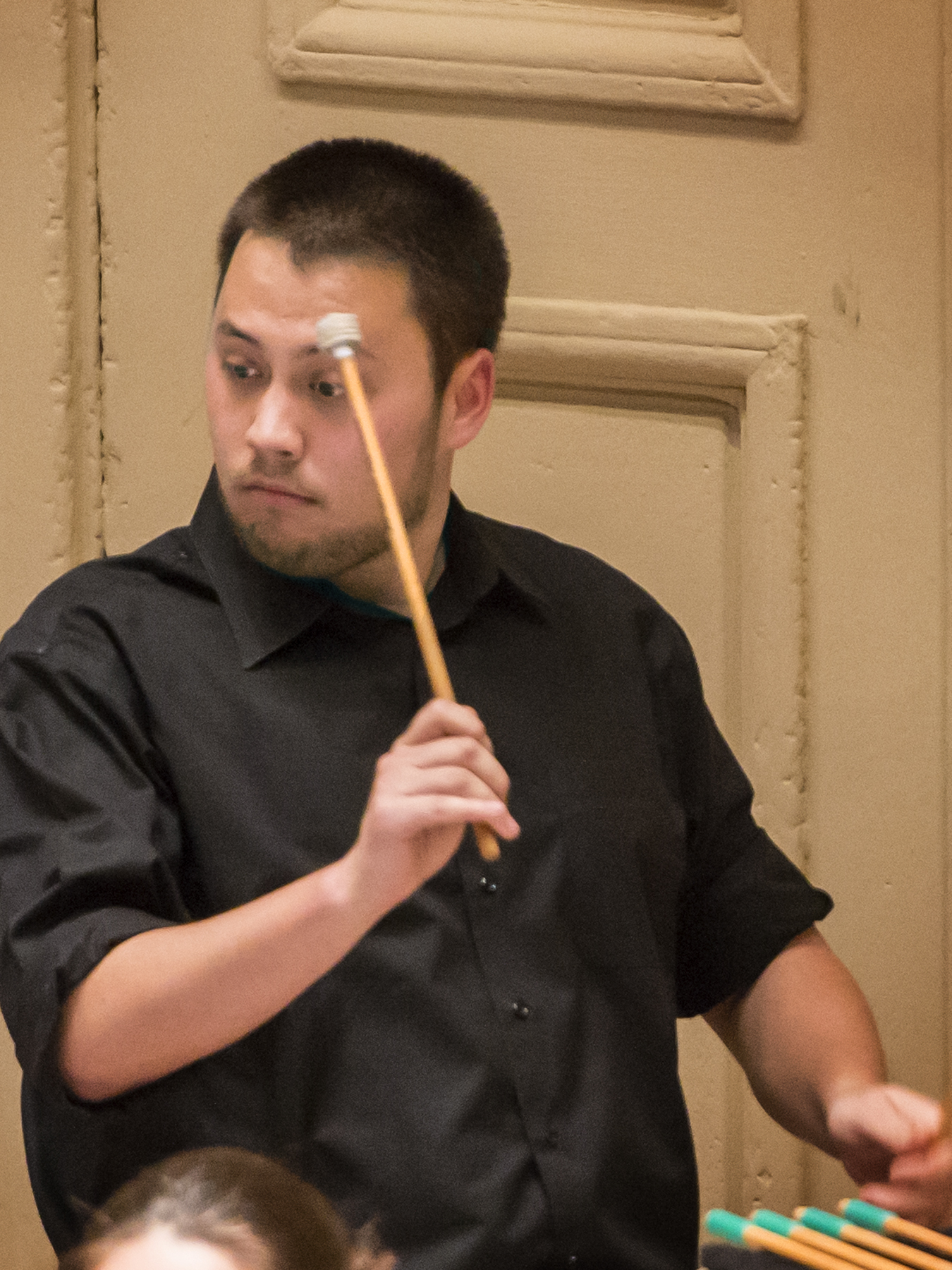
Matthew Howard ’15 M.M. currently resides back home in Los Angeles, as the new Principal Percussionist with the Los Angeles Philharmonic, the same orchestra he grew up watching. He comes from Miami, where he was a Fellow with the New World Symphony under the direction of Michael Tilson Thomas. He has performed with such groups as the San Francisco Symphony, Kansas City Symphony, Santa Barbara Symphony, and Boston Ballet. He also has been a member in the National Repertory Orchestra, Verbier Festival Orchestra, and Tanglewood Music Center Orchestra.
He began playing drumset at the age of 15 and played in his high school jazz band. By 18, he found himself enthralled with the world of percussion and started studying with a local percussionist, John Magnussen. While studying with John, he also studied with recording legend Emil Richards on jazz vibraphone, Judy Chilnick on timpani, and Jerry Steinholtz on hand percussion. After a year of community college, he transferred to the University of Southern California Thornton School of Music Percussion Department, studying with Erik Forrester. The following year, Joseph Pereira and Jim Babor of the Los Angeles Philharmonic took over as faculty at USC. After graduating, he headed out to Boston to study with Will Hudgins of the Boston Symphony Orchestra at New England Conservatory. Immediately after graduating in 2015, he was offered a fellowship with the New World Symphony for up to three years.
Tell us about what it has been like transitioning into the LAPhil as Principal Percussion. Transitioning from the New World Symphony in Miami to the Los Angeles Philharmonic as Principal Percussionist seemed like a dream come true! I knew what the job was going to entail and how I was going to go about making sure all of my responsibilities were done right and to the best of my ability. Of course, there is a bit of a learning curve and I know that I will continue to learn till the day I retire. But it was nice to come back to my hometown and play in an orchestra I grew up listening to.
How did NEC affect the way you think about and make music? NEC's connection with top-notch faculty, amazing performing venue, and the high playing level with the students really raised the bar for me. Because the percussion studio at NEC is known for being extremely successful, I knew that I would get have to really work my way up. But I saw it as a challenge and used it to motivate me to become the best musician that I could be.
What advice would you give NEC musicians taking auditions for orchestra positions? Best advice I can give to NEC musicians taking auditions for orchestral positions is to really dive into the mental side of audition taking. I'm not saying to forget about the physical aspect, but to know that there is a whole other category to master. The level at auditions have risen so much in the recent years that if you didn't put the time into the mental aspect, you would be putting yourself at a massive disadvantage. As far as the physical side goes, don't be afraid to try new things and find out exactly how every little thing affects your sound.
Describe your ideal day off. My ideal day off would consist of sleeping in without an alarm, make some breakfast, watch some sports, go outside for a run, go hit some golf balls or maybe play a round of golf, practice for a couple hours, then go home and get caught up on work. Every week is different, but we normally get at least one day off a week. It depends on the week, but I'm normally swamped with work outside of the hall that I like to stay ahead of.
